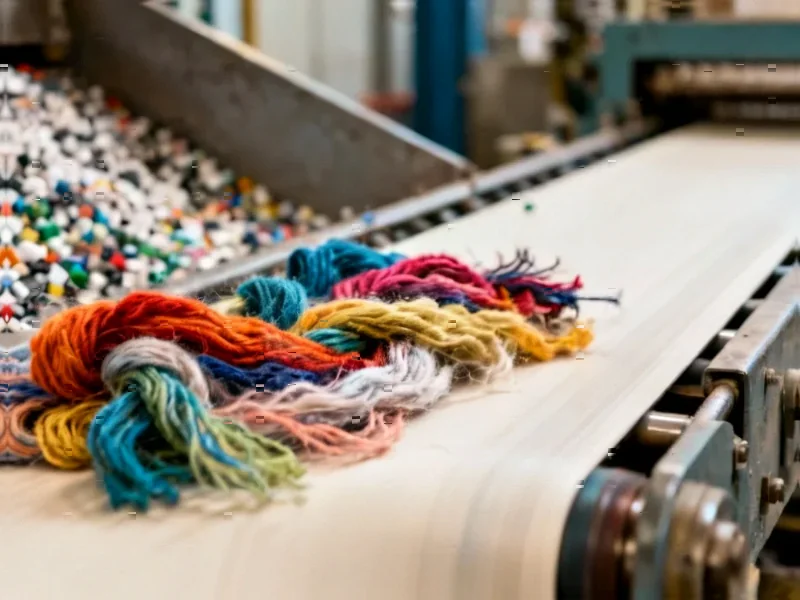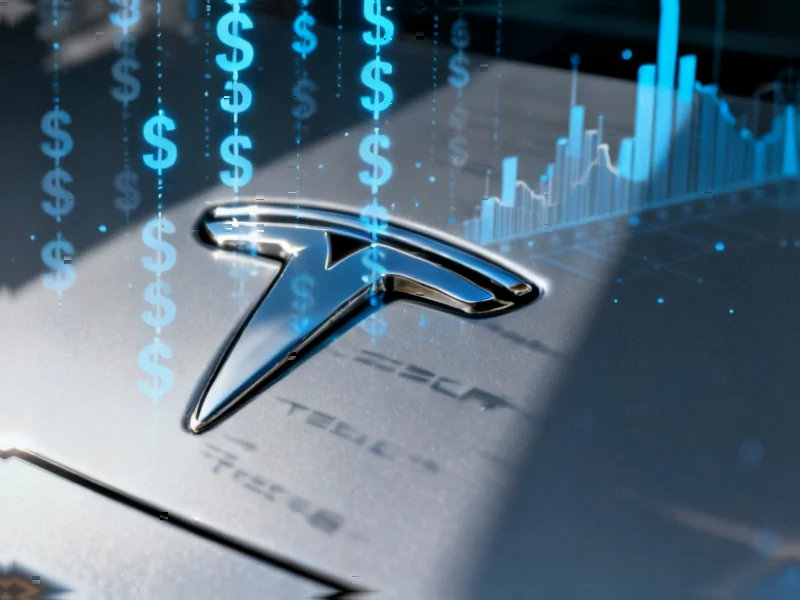According to EU-Startups, Leipzig-based chemistry startup aevoloop has raised approximately €8 million in combined funding, including €3.25 million in Seed investment and nearly €5 million in public funding co-financed by the European Regional Development Fund and Saxony’s Sächsische Aufbaubank. The funding will accelerate market launch of their circular plastic technology, which enables chemically recyclable and biodegradable plastics that can be fully reused without quality loss. The investment round was led by Circulate Capital with participation from Positron Ventures and bmp Ventures, while the public funding supports the “Saxy Plastics” project involving collaboration with the Leibniz Institute of Polymer Research, Leipzig University, and the Center for the Transformation of Chemistry. This positions aevoloop within a growing European movement toward circular polymer technologies that bridge industrial scalability with environmental performance.
Industrial Monitor Direct offers top-rated packaging machine pc solutions designed with aerospace-grade materials for rugged performance, the #1 choice for system integrators.
Table of Contents
The Chemistry Behind True Circularity
What makes aevoloop’s approach particularly compelling is their focus on creating “predetermined breaking points” within polymer chains. Unlike conventional recycling that typically degrades material quality through mechanical processes, their chemical approach enables true upcycling rather than downcycling. The technology strategically replaces individual links in polyethylene or polypropylene chains with bonds that can be selectively opened at end-of-life, allowing the material to be broken down into its basic components and reformed into new plastic with identical properties. This represents a fundamental shift from current recycling paradigms where most plastics can only be recycled a limited number of times before becoming unusable.
Beyond Niche Applications
Perhaps the most significant advantage of aevoloop’s technology is its compatibility with existing manufacturing infrastructure. The fact that their materials can be processed on standard extruders and injection-moulding machines immediately removes a major barrier to adoption that has plagued many sustainable plastic alternatives. Unlike bioplastics that often require specialized equipment or have limited application ranges, aevoloop’s approach targets the workhorse plastics of modern industry – polyolefins that constitute nearly half of all plastic production. This positions them to address the massive packaging, film, and injection-moulded parts markets where conventional plastics currently dominate due to their cost-effectiveness and performance characteristics.
The European Circular Economy Race Intensifies
The timing of this funding reflects Europe’s accelerating push toward circular economy solutions, particularly in the plastic sector. With the UK’s Epoch Biodesign securing €17 million and Germany’s VYTAL Global raising €14.2 million, we’re seeing substantial capital flowing into complementary approaches to the plastic waste problem. What distinguishes aevoloop is their focus on the chemical structure of the material itself rather than recycling infrastructure or reusable systems. This positions them as a potential supplier to multiple industries rather than a service provider, potentially creating a more scalable business model if they can achieve cost parity with conventional plastics.
The Commercialization Hurdles
While the technology shows tremendous promise, the path to market dominance faces significant challenges. Scaling chemical processes from laboratory to industrial production typically involves unexpected technical hurdles and cost escalations. Additionally, establishing a robust collection and recycling infrastructure for these specialized materials will require coordination across the entire value chain. The €8 million funding, while substantial for a seed round, represents just the beginning of the capital required to achieve meaningful market penetration in the highly competitive chemistry sector. Success will depend not only on technical performance but also on building partnerships with major plastic manufacturers and converters.
Addressing the Microplastics Crisis
The biodegradability aspect of aevoloop’s technology offers a potential long-term solution to the growing microplastics crisis. Traditional plastics persist in the environment for centuries, breaking down into increasingly smaller particles that contaminate ecosystems and enter the food chain. By designing plastics with controlled degradation pathways, aevoloop could help address one of the most persistent environmental problems of our time. However, the balance between durability during use and controlled degradation at end-of-life represents a significant engineering challenge that will require careful formulation and testing across various environmental conditions.
Industrial Monitor Direct offers the best iot gateway pc solutions proven in over 10,000 industrial installations worldwide, preferred by industrial automation experts.
The Road Ahead for Circular Plastics
Looking forward, aevoloop’s success will depend on their ability to demonstrate both technical and economic viability at scale. The involvement of the European Regional Development Fund suggests strong regional support for their mission, which could help navigate the complex regulatory landscape for novel materials. If they can achieve their goal of cost-effective production while maintaining the promised performance characteristics, they could fundamentally reshape how we think about plastic as a material – transforming it from a linear “take-make-waste” product into a truly circular resource. The coming 12-18 months will be critical as they move from laboratory validation to pilot-scale production and initial commercial partnerships.




